Nine Civil Rights Organizations Join Amicus Brief Challenging Ballot Initiatives that Would Strip Massachusetts Gig Workers of Important Rights and Benefits
OAKLAND, CALIF. (April 13, 2022) – Public Rights Project—joined by nine civil rights organizations—filed an amicus brief urging the Massachusetts Supreme Judicial Court (“SJC”) to label two ballot petitions that would permanently recategorize gig workers in Massachusetts as a second-class type of worker with lower wages and lower benefits as unconstitutional. This case has significant implications, not only for Massachusetts gig workers but for workers across the country that are organizing to protect their rights and benefit in the face of intense opposition from gig companies.
The SJC is reviewing El Koussa v. Attorney General, in which a group of Massachusetts workers argue that the Massachusetts Attorney General incorrectly certified two gig company-supported ballot initiatives for inclusion on the state’s November 2022 ballot and provided inadequate summaries of the initiatives. They argue that the ballot initiatives themselves and the Attorney General violated the state constitution and, therefore, the ballot petitions should not go before voters. If the SJC allows the initiatives to be placed on the ballot, voters may approve the petitions without fully understanding that gig workers will lose significant wages and benefits, with Black, Indigenous, and People of Color (“BIPOC”) workers suffering the worst effects.
“Gig workers, especially BIPOC workers, face challenging and difficult working conditions, and current Massachusetts employment law provides vital protection to ensuring that workers are paid fairly and have access to the benefits they need. These petitions would eliminate many crucial protections and leave workers vulnerable to exploitation,” said Public Rights Project’s Chief Program Officer Jonathan Miller. “Beyond the immediate impact on gig workers—if the SJC accepts the initiatives—gig companies will be even further emboldened to try to override important and long-lasting worker protections at the state level.”
The amicus brief argues that not only do the initiatives violate the Massachusetts constitution and that the Attorney General’s summaries of the initiatives are invalid but also that the initiatives themselves would create significant harm to BIPOC communities.
While purporting to help workers, the initiatives would lower wages, reduce access to paid sick leave and paid family and medical leave, reduce access to occupational insurance and worker’s compensation, and remove many anti-discrimination, anti-harassment, and anti-retaliation protections. BIPOC workers in Massachusetts would be hit particularly hard with these changes, especially as they already make up a disproportionate amount of the gig worker community. Even worse, if Massachusetts voters pass these propositions in November, workers would have very little resource to make changes in the future through the legislature or the courts.
Across the nation, state laws provide valuable protections to ensure that workers are paid fairly, have access to important medical benefits, and are protected from discrimination and harassment. Permitting the initiatives to move forward would undermine these core protections within Massachusetts and would cause vulnerable BIPOC workers to be exposed to unnecessary harm, limited pay, and the reduction of widely accepted worker standards.
A broad coalition of civil rights organizations joined Public Rights Project in filing the brief. The nine signatories are the American Civil Liberties Union of Massachusetts, Inc.; Chicago Gig Alliance; the Jewish Alliance for Law and Social Action; Lawyers for Civil Rights; the Massachusetts Law Reform Institute; the New England Area Conference of the National Association For The Advancement Of Colored People; People’s Parity Project; PowerSwitch Action; and the Union of Minority Neighborhoods.
Public Rights Project served as counsel to all amici.
###
About the Public Rights Project
Public Rights Project is a national organization that works to close the gap between the promise of our laws and the lived reality of marginalized communities. We work hand in hand with local, state, and tribal governments across the U.S. to equitably enforce laws that protect people’s civil and human rights. We build bridges between community organizing and government enforcement, seeking justice for those communities—people of color, immigrants, low wage working people—most affected by inequity.





